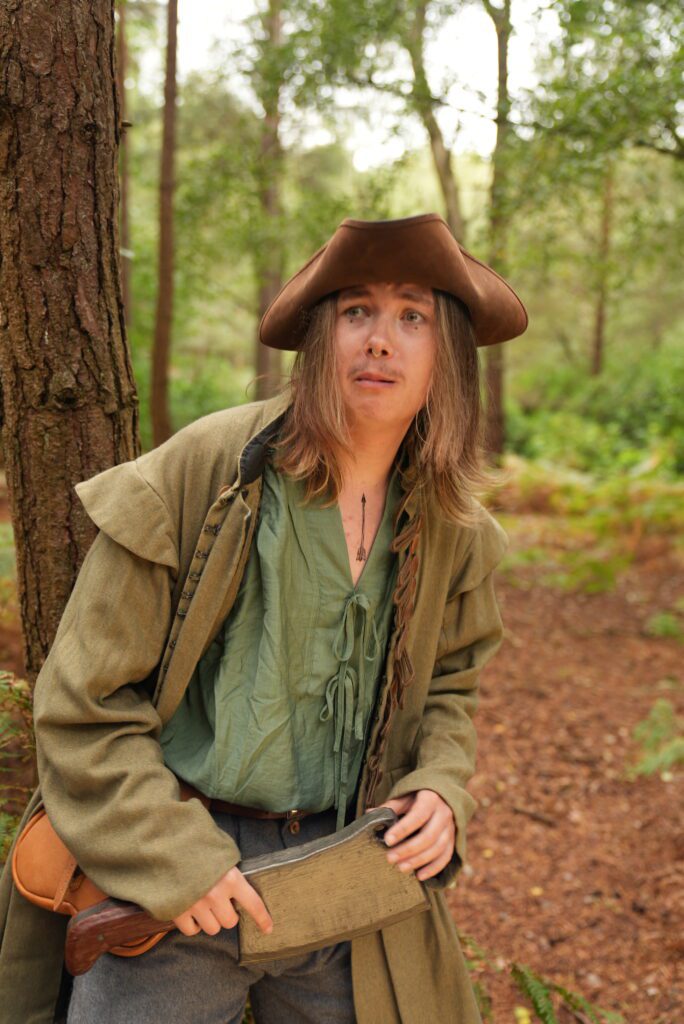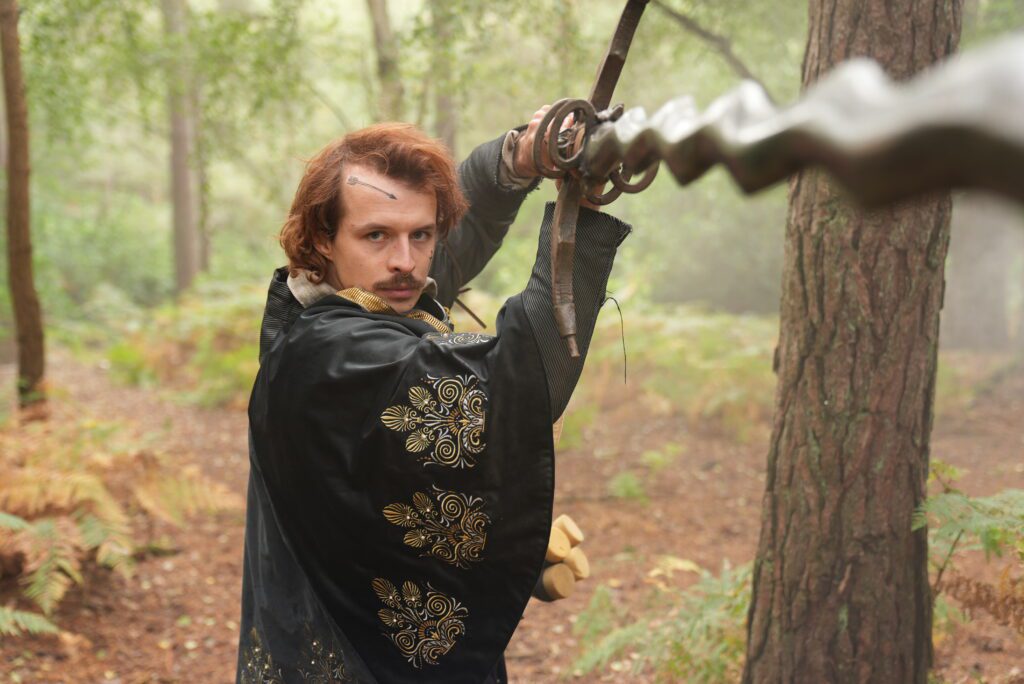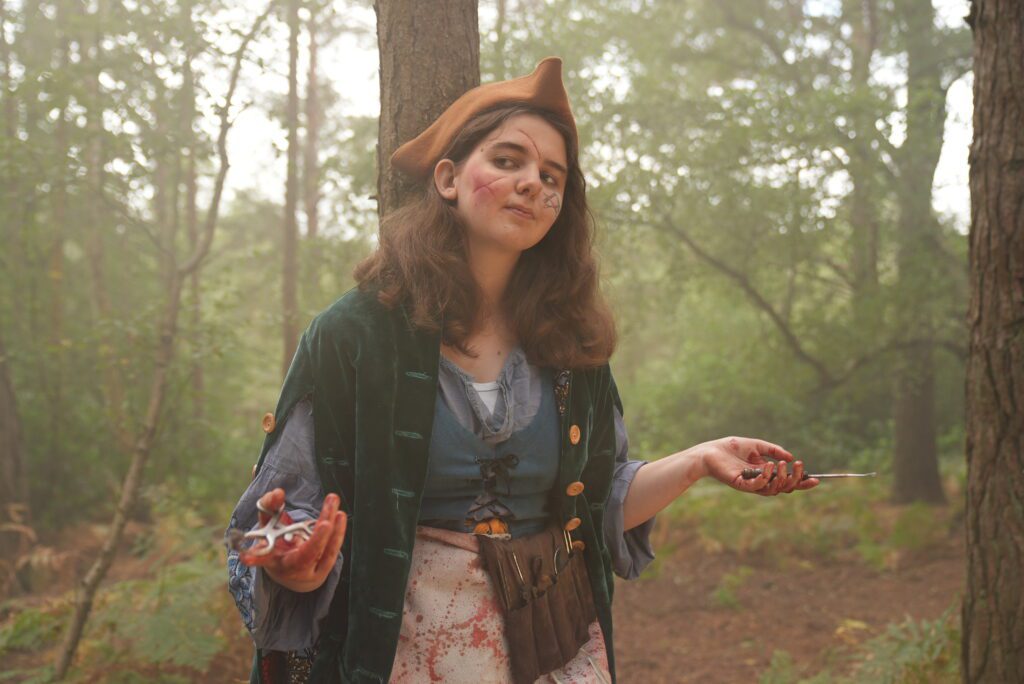Archetypes
Scrags
Volunteer fighters for the nation, either non-affiliated with a Coterie and vying for recognition or apprentices in a syndicate who can direct their energy toward the civic good. They are primarily dealers of Syndica-sponsored conflict resolution to prevent small fights becoming brawls or riots – keeping the peace by directing fights toward the Rispetto Way, or setting up small pitches if not in Hammerstadt itself. Often it is a way for poor members of society to start out, and work their way toward gaining a reputation.

Breakers
Theatrical specialists and sportspeople who can generally be found for hire on the Rispetto way and in Zweiburg doing show bouts of Breakerball. Whole troupes can be hired, or just individuals, whatever can be afforded. Breakerball is one part sport and one part performance, where each Breaker has a persona, and poets and actors are equally prized as athletes – points can be scored not only though putting the ball through the goals at each end of the Rispetto way, but also through theatrics where the Breakers try to perform a soliloquy or song while their team protects them from the other side. Breaker bouts are most often used when duels are needed to show face, but don’t need to lead to true violence, such as an elopement without prior agreement of the couple’s Coteries.
Zweihanders
Mostly heavy armoured fighters that are professional soldiers, the last vestiges of the professional armies of the Monarchs of Hammerplatz and Zweiburg, with healthy competition between the five mercenary units that are funded by the Syndicates.
Traditionally they train as heavy shock troops, armed with two-handed swords, pikes or halberds, staff-wielding mages who train in both melee combat and ranged spellcasting, and with a core of arbalists who were originally the King of Hammerplatz’ personal guard, formed up to create one force early after the war. The five units have a healthy rivalry and individuals trained at the barracks at Zweiburg Castle can often find work as guards and enforcers throughout the city.

Oathweavers
Contract Tattooists and magical scribes who work with and create Oath Ink, a magical formula that is jealously guarded by the Hammerstadt Syndica.
Oathweavers provide the tattoos that seal agreements, mark contracts and end turf wars, by tattooing symbols, receipts or in some cases entire contracts on the bodies of the people involved. These last for as long as the agreement, within agreed-upon terms, then fade.
Bringing an Oathweaver to negotiations is a sign of good faith – a show that all is above board, and often Oathweavers are called to officiate weddings and mark other rites of passage.
Battle Singers
Mages who specialise in the casting of area effect spells and magic that can affect groups of people. Additionally they are expected to boost the morale of the side they are fighting with. Battle Singers sometimes write songs in advance for particular battles, others have a set repertoire they turn to time and time again, especially when the fighters around them make requests. Hammerstadters understand the importance of choruses that can get a crowd moving, working and fighting as one.
Scarsmiths
Street Surgeons; battlemedics who often appear during public fights and take pride in providing medical care that leads to the best possible scars, for a fee. Many can be found on the Rispetto Way, vying for business.

Charterwrights
An Artisan, usually in a Coterie, the backbone of the nation. Charterwrights are celebrated in particular during the Festival of Charterwright, as the reason their nation has independence from Monarchy. Pageants and puppet-shows depicting “The Charterwrights” fighting “the Monarchs” feature heavily. A Charterwright who has successfully created an artisan item of such wonder and innovation that it garners the appreciation of their Syndicate and peers call themselves a “Chartermaster” “Chartermistress”, “Chartermeister” or even “Chartermeistro” of their craft.
Speakers
The Consigliere of a Coterie, advising members and fixing problems. Many Speakers are priests, helping guide the Spiritual matters of those around them, ensuring that disputes do not turn into gang warfare, unless they are absolutely sure they can win.
Clemencers
Priests who worship two Gods, they are considered mercenary by other nations, but they see it as a reflection of the amount of sacrifice the participants in any religious service are willing to give. Mediators in disagreements, and referees in disputes, many tend to small shrines around the city, which house two lockboxes for coin donations, each sanctified to a particular God. Whichever gains more donations in a set period is donated to a worthy cause, and the lesser amount kept by the Clemencer.
During disputes, where a trial by combat or Breakerball match is chosen to decide the outcome, Clemencers are usually the referees. The two sides can call upon a God to dedicate the fight or match to, and two hats are passed around – whichever has the most donations is the God who wins the right to have the match in their name. Clemencers are often considered nosy, and may be connected to several Coteries or wholly independent rather than a member of one – some Clemencers have a reputation for accepting donations of gossip or insider info in lieu of coin so may know more than their neighbours would like.



